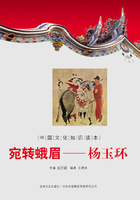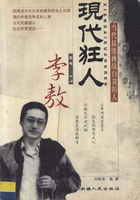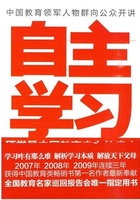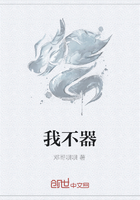1797
Unfounded reports-Carnot-Capitulation of Mantua-General Clarke- The Directory yields to Bonaparte-Berthier-Arrival of Eugène Beauharnais at Milan-Comte Delannay d'Entraigues-His interview with Bonaparte-Seizure of his papers-Copy of one describing a conversation between him and Comte de Montgaillard-The Emperor Francis-The Prince de Condé and General Pichegru.
While Bonaparte was expressing his opinion on his campaigns and the injustice with which they had been criticised, it was generally believed that Carnot dictated to him from a closet in the Luxembourg all the plans of his operations, and that Berthier was at his right hand, without whom, notwithstanding Carnot's plans, which were often mere romances, he would have been greatly embarrassed. This twofold misrepresentation was very current for some time; and, notwithstanding it was contrary to the evidence of facts, it met with much credence, particularly abroad. There was, however, no foundation for the opinion: Let us render to Caesar that which is Caesar's due. Bonaparte was a creator in the art of war, and no imitator. That no man was superior to him in that art is incontestable. At the commencement of the glorious campaign in Italy the Directory certainly sent out instructions to him; but he always followed his own plans, and continually, wrote back that all would be lost if movements conceived at a distance from the scene of action were to be blindly executed. He also offered to resign. At length the Directory perceived the impossibility of prescribing operations of war according to the view of persons in Paris; and when I became the secretary of the General-in-Chief I saw a despatch of the Directory, dated May, 1796, committing the whole plan of the campaign to his judgment; and assuredly there was not a single operation or movement which did not originate with him. Carnot was obliged to yield to his firmness. When the Directory, towards the end of 1796, felt disposed to treat for peace, General Clarke, appointed to conclude the armistice, was authorised, in case Mantua should not be taken before the negotiation was brought to a close, to propose leaving the blockade in statu quo. Had such a condition been adopted it would doubtless had been stipulated that the Emperor of Austria should be allowed to provision the garrison and inhabitants of the city day by day. Bonaparte, convinced that an armistice without Mantua would by no means conduce to peace, earnestly opposed such a condition. He carried his point; Mantua capitulated, and the result is well known. Yet he was not blind to the hazards of war; while preparing, during the blockade, an assault on Mantua, he wrote thus to the Directory: "A bold stroke of this nature depends absolutely for success on a dog or a goose." This was about a question of surprise.
Bonaparte was exceedingly sensitive to the rumours which reached him respecting Carnot and Berthier. He one day said to me: "What gross stupidity, is this? It is very well to say to a general, 'Depart for Italy, gain battles, and sign a peace at Vienna;' but the execution that is not so easy. I never attached any value to the plans which the Directory sent me. Too many circumstances occur on the spot to modify them. The movement of a single corps of the enemy's army may confound a whole plan arranged by the fireside. Only fools can believe such stuff! As for Berthier, since you have been with me, you see what he is-he is a blockhead. Yet it is he who does it all; it is he who gathers a great part of the glory of the army of Italy." I told him that this erroneous opinion could not last long; that each person would be allowed his merit, and that at least posterity would judge rightly. This observation seemed to please him.
Berthier was a man full of honour, courage, and probity, and exceedingly regular in the performance of his duties. Bonaparte's attachment to him arose more from habit than liking. Berthier did not concede with affability, and refused with harshness. His abrupt, egotistic, and careless manners did not, however, create him many enemies, but, at the same time, did not make him many friends. In consequence of our frequent intercourse he had contracted the friendly practice of speaking to me in the second person singular; but he never wrote to me in that style. He was perfectly acquainted with the disposition of all the corps, and could name their commanders and their respective forces. Day or night he was always at hand and made out with clearness all the secondary orders which resulted from the dispositions of the General-in-Chief. In fact, he was, an excellent head of the staff of an army; but that is all the praise that can be given, and indeed he wished for no greater. He had such entire confidence in Bonaparte, and looked up to him with so much admiration, that he never would have presumed to oppose his plans or give any advise. Berthier's talent was very limited, and of a special nature; his character was one of extreme weakness. Bonaparte's friendship for him and the frequency of his name in the bulletins and official despatches have unduly elevated his reputation. Bonaparte, giving his opinion to the Directory respecting the generals employed in his army, said, "Berthier has talents, activity, courage, character-all in his favour." This was in 1796. He then made an eagle of him; at St. Helena he called him a goose. He should neither have, raised him so high nor sunk him so low.
Berthier neither merited the one nor the other. Bonaparte was a man of habit; he was much attached to all the people about him, and did not like new faces. Berthier loved him. He carried out his orders well, and that enabled him to pass off with his small portion of talent.
It was about this time that young Beauharnais came to Milan. He was seventeen years old. He had lived in Paris with his mother since the departure of Bonaparte. On his arrival he immediately entered the service as 'aide de camp' to the General-in-Chief, who felt for him an affection which was justified by his good qualities.
Comte Delaunay d'Entraigues, well known in the French Revolution, held a diplomatic post at Venice when that city was threatened by the French. Aware of his being considered the agent of all the machinations then existing against France, and especially against the army of Italy, he endeavoured to escape; but the city being, surrounded, he was seized, together with all his papers. The apparently frank manners of the Count pleased Bonaparte, who treated him with indulgence. His papers were restored, with the exception of three relating to political subjects. He afterwards fled to Switzerland, and ungratefully represented himself as having been oppressed by Bonaparte. His false statements have induced many writers to make of him an heroic victim. He was assassinated by his own servant in 1802.
I kept a copy of one of his most interesting papers. It has been much spoken of, and Fauche-Borel has, I believe, denied its authenticity and the truth of its contents. The manner in which it fell into the hands of the General-in-Chief, the importance attached to it by d'Entraigues, the differences I have observed between the manuscript I copied and versions which I have since read, and the knowledge of its authenticity, having myself transcribed it from the handwriting of the Count, who in my presence vouched for the truth of the facts it details-all these circumstances induce me to insert it here, and compel me to doubt that it was, as Fauche-Borel asserted, a fabrication.
This manuscript is entitled, 'My Conversation with Comte de Montgaillard, on the 4th of December 1796, from Six in the Afternoon till midnight, in the presence of the Abbe Dumontel.'
[On my copy are written the words, "Extracts from this conversation, made by me, from the original." I omitted what I thought unimportant, and transcribed only the most interesting passages. Montgaillard spoke of his escape, of his flight to England, of his return to France, of his second departure, and finally of his arrival at Bale in August 1795.]
The Prince de Condé soon afterwards, he said, called me to Mulheim, and knowing the connections I had had in France, proposed that I should sound General Pichegru, whose headquarters were at Altkirch, where he then was, surrounded by four representatives of the Convention.
I immediately went to Neufchatel, taking with me four or five hundred Louis. I cast my eyes on Fauche-Borel, the King's printer at Neufchatel, and also yours and mine, as the instrument by which to make the first overture, and I selected as his colleague M. Courant, a native of Neufchatel. I persuaded them to undertake the business: I supplied them with instructions and passports. They were foreigners: so I furnished them with all the necessary documents to enable them to travel in France as foreign merchants and purchasers of national property. I went to Bale to wait for news from them.
On the 13th of August Fauche and Courant set out for the headquarters at Altkirch. They remained there eight days without finding an opportunity to speak to Pichegru, who was surrounded by representatives and generals. Pichegru observed them, and seeing them continually wheresoever he went, he conjectured that they had something to say to him, and he called out in a loud voice, while passing them, "I am going to Huningen." Fauche contrived to throw himself in his way at the end of a corridor. Pichegru observed him, and fixed his eyes upon him, and although it rained in torrents, he said aloud, "I am going to dine at the chateau of Madame Salomon." This chateau was three leagues from Huningen, and Madame Salomon was Pichegru's mistress.
Fauche set off directly to the chateau, and begged to speak with General Pichegru. He told the general that, being in the possession of some of J. J. Rousseau's manuscripts, he wished to publish them and dedicate them to him. "Very good," said Pichegru; "but I should like to read them first; for Rousseau professed principles of liberty in which I do not concur, and with which I should not like to have my name connected."-"But," said Fauche, "I have something else to speak to you about."-"What is it, and on whose behalf?"- "On behalf of the Prince de Condé."-"Be silent, then, and follow me."
He conducted Fauche alone into a retired cabinet, and said to him, "Explain yourself; what does Monseigneur le Prince de Condé wish to communicate to me?" Fauche was embarrassed, and stammered out something unintelligible. "Compose yourself." said Pichegru; "my sentiments are the same, as the Prince de Condé's. What does he desire of me?" Fauche, encouraged by these words, replied, "The Prince wishes to join you. He counts on you, and wishes to connect himself with you."
"These are vague and unmeaning words," observed Pichegru. "All this amounts to nothing. Go back, and ask for written instructions, and return in three days to my headquarters at Altkirch. You will find me alone precisely at six o'clock in the evening."
Fauche immediately departed, arrived at Bale, and informed me of all that had passed. I spent the night in writing a letter to General Pichegru. (The Prince de Condé, who was invested with all the powers of Louis XVIII, except that of granting the 'cordon-bleu', had, by a note in his own handwriting, deputed to me all his powers, to enable me to maintain a negotiation with General Pichegru).
I therefore wrote to the general, stating, in the outset, everything that was calculated to awaken in him that noble sentiment of pride which is the instinct of great minds; and after pointing out to him the vast good it was in his power to effect, I spoke of the gratitude of the King, and the benefit he would confer on his country by restoring royalty. I told him that his Majesty would make him a marshal of France, and governor of Alsace, as no one could better govern the province than he who had so valiantly defended it. I added that he would have the 'cordon-rouge', the Chateau de Chambord, with its park, and twelve pieces of cannon taken from the Austrians, a million of ready money, 200,000 livres per annum, and an hotel in Paris; that the town of Arbors, Pichegru's native place, should bear his name, and be exempt from all taxation for twenty-five years; that a pension of 200,000 livres would be granted to him, with half reversion to his wife, and 50,000 livres to his heirs for ever, until the extinction of his family.
Such were the offers, made in the name of the King, to General Pichegru. (Than followed the boons to be granted to the officers and soldiers, an amnesty to the people, etc). I added that the Prince de Coude desired that he would proclaim the King in the camps, surrender the city of Huningen to him, and join him for the purpose of marching on Paris.
Pichegru, having read my letter with great attention, said to Fauche, "This is all very well; but who is this M. de Montgaillard who talks of being thus authorised? I neither know him nor his signature. Is he the author?"-"Yes," replied Fauche. "But," said Pichegru, "I must, before making any negotiation on my part, be assured that the Prince de Condé, with whose handwriting I am well acquainted, approves of all that has been written is his name by M. de Montgaillard. Return directly to M. de Montgaillard, and tell him to communicate my answer to the Prince."
Fauche immediately departed, leaving M. Courant with Pichegru. He arrived at Bale at nine o'clock in the evening. I set off directly for Malheim, the Prince de Condé's headquarters, and arrived there at half-past twelve. The Prince was in bed, but I awoke him. He made me sit down by his bedside, and our conference then commenced.
After having informed the Prince of the state of affairs, all that remained was to prevail on him to write to General Pichegru to confirm the truth of what had been stated in his name. This matter, which appeared so simple, and so little liable to objection, occupied the whole night. The Prince, as brave a man as can possibly be, inherited nothing from the great Condé but his undaunted courage. In other respects he is the most insignificant of men; without resources of mind, or decision of character; surrounded by men of mediocrity, and even baseness; and though he knows them well, he suffers himself to be governed by them.
It required nine hours of hard exertion on my part to get him to write to General Pichegru a letter of eight lines. 1st. He did not wish it to be in his handwriting. 2d. He objected to dating it 3d. He was unwilling to call him General, lest he should recognise the republic by giving that title. 4th. He did not like to address it, or affix his seal to it.
At length he consented to all, and wrote to Pichegru that he might place full confidence in the letters of the Comte de Montgaillard. When all this was settled, after great difficulty, the Prince next hesitated about sending the letter; but at length he yielded. I set off for Bale, and despatched Fauche to Altkirch, to General Pichegru.
The general, after reading the letter of eight lines, and recognising the handwriting and signature, immediately returned it to Fauche, saying, "I have seen the signature: that is enough for me. The word of the Prince is a pledge with which every Frenchman ought to be satisfied. Take back his letter." He then inquired what was the Prince's wish. Fauche explained that he wished-1st.
That Pichegru should proclaim the King to his troops, and hoist the White flag. 2d. That he should deliver up Huningen to the Prince. Pichegru objected to this. "I will never take part in such a plot," said he; "I have no wish to make the third volume of La Fayette and Dumouriez. I know my resources; they are as certain as they are vast. Their roots are not only in my army, but in Paris, in the Convention, in the departments, and in the armies of those generals, my colleagues, who think as I do. I wish to do nothing by halves.
There must be a complete end of the present state of things. France cannot continue a Republic. She must have a king, and that king must be Louis XVIII. But we must not commence the counter-revolution until we are certain of effecting it. 'Surely and rightly' is my motto. The Prince's plan leads to nothing. He would be driven from Huningen in four days, and in fifteen I should be lost. My army is composed both of good men and bad. We must distinguish between them, and, by a bold stroke, assure the former of the impossibility of drawing back, and that their only safety lies in success. For this purpose I propose to pass the Rhine, at any place and any time that may be thought necessary. In the advance I will place those officers on whom I can depend, and who are of my way of thinking. I will separate the bad, and place them in situations where they can do no harm, and their position shall be such as to prevent them from uniting. That done, as soon as I shall be on the other side of the Rhine, I will proclaim the King, and hoist the white flag. Condé's corps and the Emperor's army will then join us. I will immediately repass the Rhine, and re-enter France. The fortresses will be surrendered, and will be held in the King's name by the Imperial troops. Having joined Condé's army, I immediately advance. All my means now develop themselves on every side. We march upon Paris, and in a fortnight will be there. But it is necessary that you should know that you must give the French soldier wine and a crown in his hand if you would have him cry 'Vive le Roi! Nothing must be wanting at the first moment. My army must be well paid as far as the fourth or fifth march in the French territory. There go and tell all this to the Prince, show my handwriting, and bring me back his answer."
During these conferences Pichegru was surrounded by four representatives of the people, at the head of whom was Merlin de Thionville, the most insolent and the most ferocious of inquisitors. These men, having the orders of the Committee, pressed Pichegru to pass the Rhine and go and besiege Manheim, where Merlin had an understanding with the inhabitants. Thus, if on the one hand the Committee by its orders made Pichegru wish to hasten the execution of his plan, on the other he had not a moment to lose; for to delay obeying the orders of the four representatives was to render himself suspected. Every consideration, therefore, called upon the Prince to decide, and decide promptly. Good sense required him also to do another thing, namely, to examine without prejudice what sort of man Pichegru was, to consider the nature of the sacrifice he made, and what were his propositions. Europe acknowledged his talents, and he had placed the Prince in a condition to judge of his good faith.
Besides, his conduct and his plan afforded fresh proofs of his sincerity. By passing the Rhine and placing himself between the armies of Condé and Wurmser, he rendered desertion impossible; and, if success did not attend his attempt, his own acts forced him to become an emigrant. He left in the power of his fierce enemies his wife, his father, his children. Everything bore testimony to his honesty; the talents he had shown were a pledge for his genius, his genius for his resources; and the sacrifices he would have to make in case of failure proved that he was confident of success.
What stupid conceit was it for any one to suppose himself better able to command Pichegru's army than Pichegru himself!-to pretend to be better acquainted with the frontier provinces than Pichegru, who commanded them, and had placed his friends in them as commanders of the towns! This self-conceit, however, ruined the monarchy at this time, as well as at so many others. The Prince de Condé, after reading the plan, rejected it in toto. To render it successful it was necessary to make the Austrians parties to it. This Pichegru exacted, but the Prince of Condé would not hear a word of it, wishing to have confined to himself the glory of effecting the counter-revolution. He replied to Pichegru by a few observations, and concluded his answer by returning to his first plan-that Pichegru should proclaim the King without passing the Rhine, and should give up Huningen; that then the army of Condé by itself, and without the aid of the Austrians, would join him. In that case he could promise 100,000 crowns in louis, which he had at Bale, and 1,400,000 livres, which he had in good bills payable at sight.
No argument or entreaty had any effect on the Prince de Condo. The idea of communicating his plan to Wurmser and sharing his glory with him rendered him blind and deaf to every consideration. However, it was necessary to report to Pichegru the observations of the Prince de Condé, and Courant was commissioned to do so.
This document appeared so interesting to me that while Bonaparte was sleeping I was employed in copying it. Notwithstanding posterior and reiterated denials of its truth, I believe it to be perfectly correct.
Napoleon had ordered plans of his most famous battles to be engraved, and had paid in advance for them. The work was not done quickly enough for him. He got angry, and one day said to his geographer, Bacler d'Albe, whom he liked well enough, "Ah! do hurry yourself, and think all this is only the business of a moment. If you make further delay you will sell nothing; everything is soon forgotten!"
We were now in July, and the negotiations were carried on with a tardiness which showed that something was kept in reserve on both sides. Bonaparte at this time was anything but disposed to sign a peace, which he always hoped to be able to make at Vienna, after a campaign in Germany, seconded by the armies of the Rhine and the Sambre-et-Meuse. The minority of the Directory recommended peace on the basis of the preliminaries, but the majority wished for more honourable and advantageous terms; while Austria, relying on troubles breaking out in France, was in no haste to conclude a treaty. In these circumstances Bonaparte drew up a letter to be sent to the Emperor of Austria, in which he set forth the moderation of France; but stated that, in consequence of the many delays, nearly all hope of peace had vanished. He advised the Emperor not to rely on difficulties arising in France, and doubted, if war should continue and the Emperor be successful in the next campaign, that he would obtain a more advantageous peace than was now at his option. This letter was never sent to the Emperor, but was communicated as the draft of a proposed despatch to the Directory. The Emperor Francis, however, wrote an autograph letter to the General-in-Chief of the army of Italy, which will be noticed when I come to the period of its reception: It is certain that Bonaparte at this time wished for war. He was aware that the Cabinet of Vienna was playing with him, and that the Austrian Ministers expected some political convulsion in Paris, which they hoped would be favourable to the Bourbons. He therefore asked for reinforcements. His army consisted of 35,900 men, and he desired it to be raised to 60,000 infantry and 10,000 cavalry ready for the field.
General Desaix, profiting by the preliminaries of Leoben, came in the end of July to visit the scene of the army of Italy's triumphs. His conversations with Bonaparte respecting the army of the Rhine were far from giving him confidence in his military situation in Italy, or assurance of support from that army in the event of hostilities commencing beyond the mountains. It was at this period that their intimacy began. Bonaparte conceived for Desaix the greatest esteem and the sincerest friendship.
-[Desaix discontented with the conduct of affairs in Germany, seceded from the army of the Rhine, to which he belonged, to join that of Napoleon. He was sent to Italy to organise the part of the Egyptian expedition starting from Civita Vecchia. He took with him his two aides de camp, Rapp and Savary (later Duc de Rovigo), both of whom, on his death, were given the same post with Bonaparte.]
When Desaix was named temporary commander of the force called the army of England, during the absence of General Bonaparte, the latter wrote to the Directory that they could not have chosen a more distinguished officer than Desaix; these sentiments he never belied. The early death of Desaix alone could break their union, which, I doubt not, would eventually have had great influence on the political and military career of General Bonaparte.
All the world knows the part which the General-in-Chief of the army of Italy took at the famous crisis of the 18th Fructidor; his proclamation, his addresses to the army, and his celebrated order of the day. Bonaparte went much into detail on this subject at St. Helena; and I shall now proceed to state what I knew at the time respecting that memorable event, which was in preparation in the month of June.















